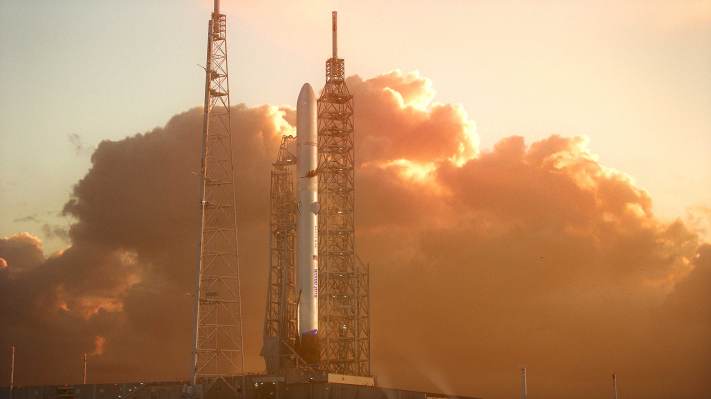NASA is planning a science mission to Mars that will ride up aboard a New Glenn — Blue Origin’s first big government contract for the as-yet-untested launch vehicle.
New Glenn is the much, much larger sibling of the suborbital New Shepard rocket that so many celebrities and rich folks have gone to the edge of space in. Announced in 2016, the launch vehicle would compete with SpaceX’s Falcon Heavy and other heavy-lift options. But 6 years later, we have yet to see a New Glenn in one piece, let alone ready to launch a Mars mission.
The first flight for New Glenn was scheduled for late 2021, but that date was “refined” earlier that year, purportedly because a contract with the Pentagon had fallen through. Q4 of 2022 was the next window, but obviously that’s come and gone. I’ve asked for updated timing.
The launch contract is through the Venture-Class Acquisition of Dedicated and Rideshare (VADR) program at NASA, which early last year assigned a maximum of $300 million to be split among 13 companies for launch services of various kinds. Everyone who’s anyone is on the list there, essentially providing a low-cost option for noncritical missions.
“These small satellites and Class D payloads tolerate relatively high risk and serve as an ideal platform for technical and architecture innovation,” wrote NASA at the time of the award. In other words, we’d certainly rather they didn’t blow up, but at this price who’s arguing?
The lucky mission to be awarded a spot on a New Glenn is Escapade, a dual-craft Martian magnetosphere study that, funnily enough, is being designed and built by launch rival Rocket Lab. (They don’t really overlap yet, in fact, but they are nominally competitors.)
The notional launch date is in 2024, but those tend to slip, especially when the rocket they’re supposed to go up on is still kind of theoretical.
Rocket Lab isn’t mad, though. “The size of the spacecraft and ESCAPADE’s mission requirements meant the mission is unsuitable for launch on Electron,” the company told TechCrunch.
And for a refresher on the mission: “The pair of Photons will conduct an 11-month interplanetary cruise before inserting themselves into elliptical orbits around Mars to understand the structure, composition, variability, and dynamics of Mars’ unique hybrid magnetosphere – which will also support crewed exploration programs like Artemis through improved solar storm prediction.”
New Glenn may not be flying yet, but it does have plenty of interest, most prominently from Blue Origin’s friends at Kuiper, Amazon’s communication satellite constellation company. They ordered 12 last year, which should keep Blue’s new Huntsville facility operating for the foreseeable future.
